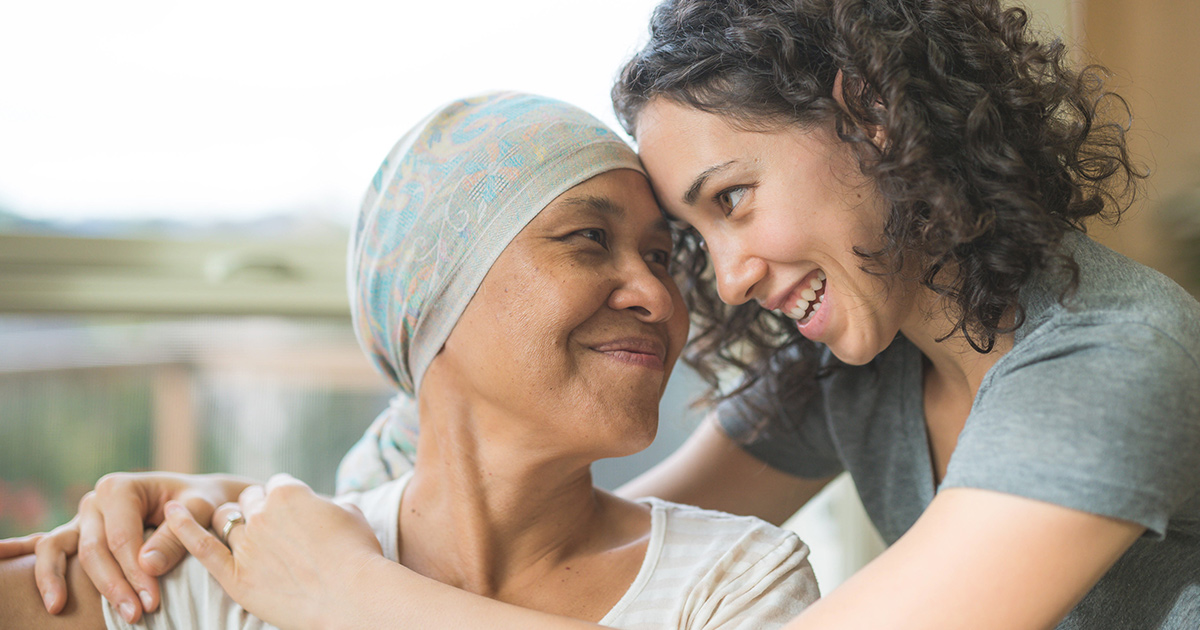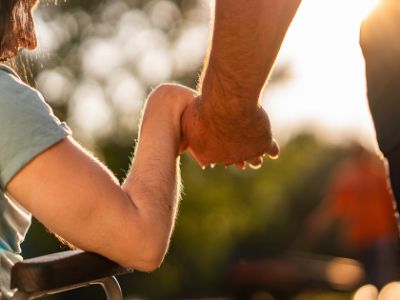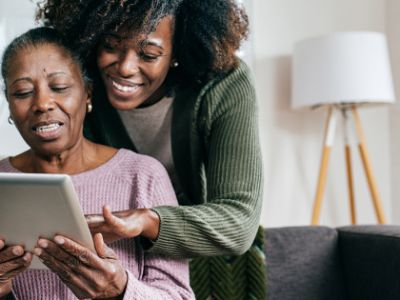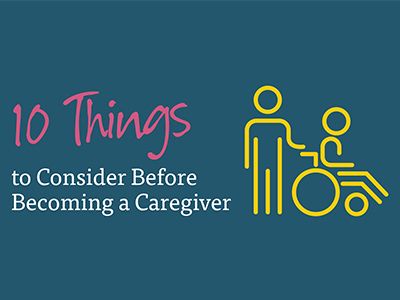For many people, the journey toward becoming a caregiver to a family member happens slowly. Maybe mowing the yard on the weekend becomes too much for your dad. Maybe you become the driver because your mom doesn’t like to drive in the dark. You start going to more doctor’s appointments with both of them because “the doctor doesn’t speak up.”
For others, the transition to a family caregiver happens instantly. Tyler Carlson remembers how it happened for him. “It was late on a Friday night in April nearly a decade ago. My mom was recovering from brain aneurysm surgery when a blood clot formed at the base of her skull. And with that, everything changed.”
Uncertainty in becoming a caregiver
“We were all totally unprepared for the situation,” says Carlson. “We were confused, anxious and grieving, all at the same time. We didn’t know what decisions needed to be made, who should be making them, if she had a living will and if so, where it was located.”
A living will, also known as an advance care directive, is a legal document that states a person’s wishes with respect to medical care. More specifically, it lets medical personnel know whether a person wants to have life-sustaining procedures used in the event that person is unable to make those decisions at the time they’re needed. In the absence of any health care directive, state law defaults to a specific family hierarchy for decision making.
“For us, this meant all decisions were deferred to my dad,” says Carlson. “And nobody knew what to do, we were just all walking around confused.”
Becoming a caregiver means offering long-term care
"My mom was in the hospital for two weeks, and then moved to a long-term care unit. She then went to a rehabilitation facility." Carlson adds, “My dad moved in with my family for six months while Mom was in treatment near us. Dad spent eight to 10 hours a day caregiving for Mom. And I basically became the caregiver support for the caregiver.” But they learned my mom’s medical condition had plateaued and her quality of life would not improve much with continued therapy.
“Perhaps I’m not surprised, but one of the things I remember most is the guilt I felt so often. My children were excited to have their grandpa living at home with them, and yet they rarely saw him. It was tough to explain why he wasn’t coming to games or other events he would have normally been a big part of. And it was tough for me because I really felt I needed to be in two places at once — with the kids as they were doing their normal routine, and at the hospital to be with my mom and dad as much as possible.”
“It was hard watching my dad in the role of a family caregiver,” says Carlson. “It was admirable that he was there – but he became obsessed with the duties and responsibilities of her homecare. He knew everyone’s routines, when she should get medicine and how much, when she should eat and be bathed and he was adamant that she get a level of consistent care. If her situation changed even slightly, like a minor change in her temperature, it triggered a rollercoaster of emotions for him.”
Caregiver stress and burnout is a common, if not an expected, part of the caregiver journey. There is a shift in roles and it’s natural to feel exhausted, strained, alone or sad. “The dynamics of our family changed,” says Carlson. “Mom was the calming influence and support in the family. And without her, my sisters tended to step up and manage family decisions. We also all silently resigned ourselves to the fact that her long term care situation and quality of life wasn’t going to change.”
The role of a caregiver requires support and planning
While caregiving was stressful, there were also ways things changed for the better. “Relationships became closer. People talked more and supported each other. We became closer to our dad,” says Carlson. “It prompted some of us to do health screenings to understand what our own risks are. And my wife and I did a living will and have talked about it with friends and family so there’s not that confusion in those moments of shock and fear.
“I feel strongly that everyone needs to create an advanced health care directive. And have the caregiving conversation with your spouse and siblings now. It’s much easier to talk now when it’s a casual conversation. Don’t wait until there may be a risk and the potential for caregiving or being cared for is imminent. If you talk in advance it’s more casual not foreboding.
“If we’d had the necessary legal documents in place during Mom’s situation, it could have eased so much pain. We could have known what she would have wanted and everyone would have been in agreement. But there was nothing in place to give us direction.”
What can you do to prepare for being a caregiver?
The journey of becoming caregiver for the injured or elderly impacts everyone a little bit differently. “It was a day-to-day commitment for my dad, and it impacted the whole family, not just him.”



